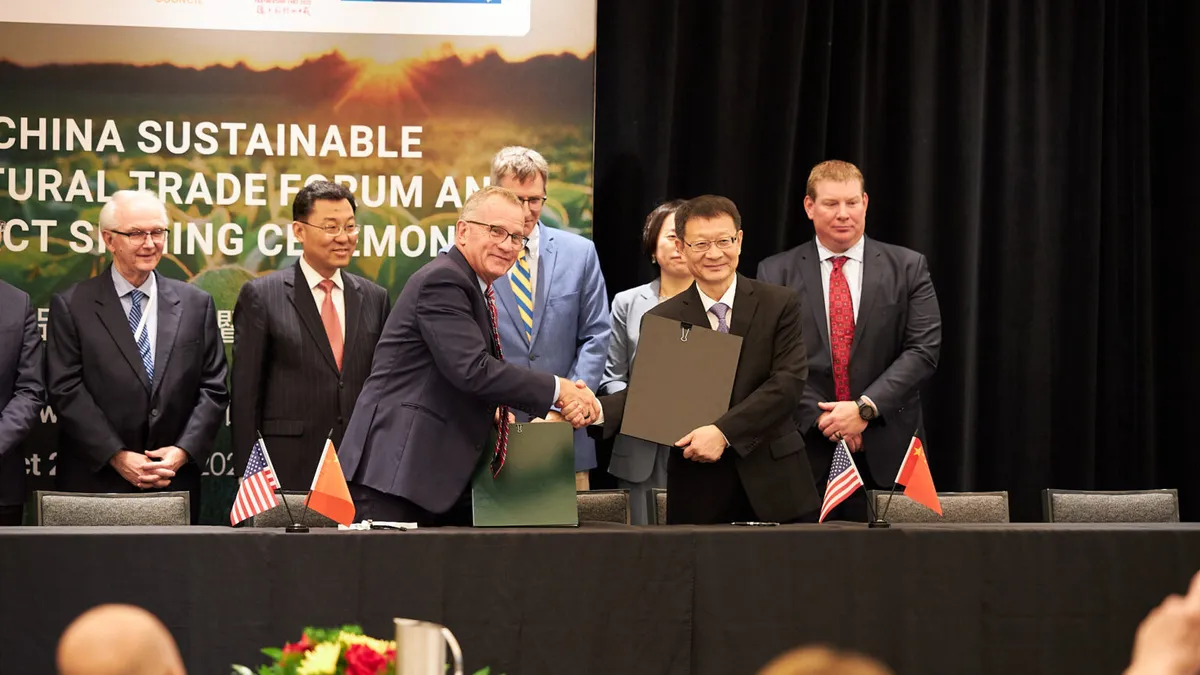Grain companies from China participated in a rare formal contract-signing agreement for U.S. farm goods last week, a move that could pave the way for increased purchases from the world's largest agricultural importer.
Companies including Archer-Daniels-Midland Co., Bunge, Cargill and CHS signed 11 purchasing agreements with buyers from China at an event in Des Moines, Iowa, last Tuesday, the U.S. Soybean Export Council said in a statement. The formal signing ceremony was the first since 2017, just prior to the Trump-era trade war, Reuters reported.
Volume commitments and commodities purchased were not specified, though agreements were worth "multiple billions in value," Xie Feng, China's ambassador to the U.S., said in a statement.
The U.S. Department of Agriculture reported sales of 126,000 metric tons of soybeans, or approximately 277.8 million pounds, to China on Oct. 25, the day after the signing ceremony. The agency announced another 110,000 metric tons, roughly 242.5 million pounds, on Oct. 26.
Over the past few years, China has shifted imports away from the U.S. and to Brazil, with soybean purchases from the South American country reaching an all-time high in the year's first half.
China could make additional purchases from the U.S. in the coming months as harvest enters full swing. U.S. soybean prices are becoming more competitive with Brazil, and sales tend to soar between October and January, according to S&P Global Commodity Insights.
China's purchases from the U.S. have declined significantly, but higher prices allowed for strong export value growth. Despite a 25% volume drop in corn exports to China, for example, total value hit the second-highest level on record in fiscal year 2022, exceeding $4.8 billion.
"These contracts illustrate the gains from trade: food is moving from surplus regions to deficit," Jason Hafemeister, acting deputy under secretary for the USDA's Trade and Foreign Agricultural Affairs, said in a statement. "The confidence behind these contracts allows U.S. producers to invest where we have agriculture advantages."











